Big bowls of pasta, op shops, my husband and a comfy pair of pants.
But one of my great loves is books. I love reading books, particularly nonfiction books.
As a kid, I wasn’t much of a bookworm though.
When it came to reading out loud in front of the class, I absolutely hated doing this. My anxiety levels would skyrocket. Reading circles (where you’d pass the book around and take turns reading) felt like a form of torture.
I thought . . .
“I suck at this. This is not fun!”
So for many years, I avoided books like the plague.
But people can change. And thankfully, I changed. And my relationship to books and reading changed, too.
In my first year of university, I discovered the life changing work of Dr Leo Buscaglia. And I was hooked.
Leo was this larger than life university professor who wrote about topics such as love, connection, empathy, change and learning. He came from a migrant Italian family and he loved food, life and learning. He had been labelled a ‘slow learner’ as a child, so I felt like Leo and I had a few things in common.
I couldn’t get enough of Leo’s ideas and work. I tracked down every resource that was published by Leo, including a set of 8 audio cassette tapes of public talks Leo had delivered (audiobooks and podcasts weren’t a thing back then).
Leo’s books kick-started my reading habit and changed the way I thought about life and learning.
Fast forward to 15 years later . . .
My library card is currently maxed out. I have several books on various topics on the go at any one time.
My goal is to knock off one book a week (although I often don’t achieve this) and integrate at least one new idea/strategy into my life from each book.
As Derek Sivers says:
“Learning without doing is wasted. If I don’t use what I learn, then it was pointless! How horrible to waste those hundreds of hours I spent learning, and not turn it into action. Like throwing good food in the trash: it’s morally wrong.”
So over the past year, I’ve read and mind mapped out a lot of books. Here are 10 books that changed my life and thinking in some way this year . . .
Written in a sarcastic, tongue in cheek, punchy tone, ‘How to fail fantastically’ is a refreshing read compared to most books on failure that dish out stock standard advice such as “failure is how we learn and grow”.
There are plenty of great lessons in this book about how to live a successful life (whatever success may look like to you). One idea I took from this book is if you don’t take any action at all towards your goals and dreams, you can bypass failure and head straight to regret. Life is too short for regrets, so read this book!
We assume that having lots of money, the latest shiny object and the perfect body will make us happy. But research shows this is not the case. The things we think will make us happy often fail to deliver. Intellectually, I understood this (I’d read the research studies). But as someone who grew up in a working class family, I still felt this desire to make money.
It wasn’t until I saw Lauren Greenfield’s book of photos and stories of the super rich that I really got how misguided we are as a society. The pictures clearly show that beyond a certain point, money and stuff doesn’t make you happy. The more you have, the more you want more.
This book is the perfect go-to guide on how to live an inwardly rich and fulfilling life on a budget. Forget eating out at fancy restaurants, buying a luxury car, going shopping, etc. This book is the ultimate reframe on how to be truly rich and happy. It’s about living life fully and making the most of your precious resources (time, energy, money and possessions).
The authors explore topics such as how to discover your ‘sweet spot’ (your enough point), how to reinvent Christmas (vanquishing ‘Christmas consumption mania’), and relishing free and cheap things (e.g. afternoon naps). It’s a fun and easy read. Implementing the simple ideas will make your life richer in so many ways.
It’s easy to feel overwhelmed by the state of the world (e.g. the climate crisis, mass species extinction, an epidemic of anxiety and depression). It’s even easier to switch off from these massive issues and distract ourselves with novelty and instant gratification. But in this book Sarah Wilson gives us the pep talk we all need to step up and go out and create a better world for ourselves and future generations.
Essential reading for anyone who is concerned about the state of the world.
We live in a culture that is obsessed with money. We sacrifice our time to make more money, thinking if we have more money we will be happier. However, research shows people who are more time affluent and value time over money tend to be happier.
This book taught me that I need to priorities my time over making money. So what does this look like in practical terms? I have started to say no to taking on too much work. I have also hired a friend’s teenage daughter to help out with household chores, which frees me up to spend time on activities I enjoy (e.g. reading and writing).
If you want to change your behaviour, you need to start small. Go tiny. Too many of us go too big (too early) and we give up. I’ve read a lot of books on habit formation but in Tiny Habits Professor BJ Fogg offers a new and fresh perspective on how to wire in new behaviours.
Since reading the book, I’ve implemented a range of tiny habits around exercise, healthy eating, positive thinking and mindfulness meditation.
This book shows you how to take care of your most precious asset: your brain.
Team Sherzai lay out the evidence that shows Alzheimer’s is predominantly a lifestyle disease that can be prevented through their NEURO plan: Nutrition (plant-based wholefood lifestyle), Exercise, Unwind (stress reduction), Rest (sleep) and Optimise (challenging your brain with complex tasks).
This book is one of the main reasons why I adopted a whole-food plant-based lifestyle and no longer eat processed junk foods.
Period preacher Lucy Peach has created the ultimate self-care manual. Peach invites us to think about periods as a female superpower.
She presents four phases females go through (Dream, Do, Give, and Take) and shows what we can do in each phase to harness this superpower. It’s a fun and empowering read, especially for young women.
If you’re feeling increasingly uncomfortable about using social media, this book is one to read.
Author Jaron Lanier refer to social media platforms, such as Instagram and Facebook, as ‘behaviour modification empires’. He lays out how “we’re being hypnotized little by little by technicians we can’t see, for purposes we don’t know”.
After reading this book I hit delete on my Facebook account. This small action is the most effective thing I have done this year to improve my life and happiness.
Every now and then I feel a need to revamp my systems and the way I work. So in this book, I enjoyed Jessie Kwak sharing how she organises her work, clears her mind, deals with distractions and gets stuff done. This book is packed full of ideas and strategies to help you feel more control of your life and make time for creative projects.
All of the above books are fabulous reads but if I was to choose my top three books, they would be as follows:
So there you have it – 10 books that changed my life and thinking in some way this year. Most of these books I got from my local library, so I think it’s fair to say I engaged in some fairly thrifty personal development this year.
So why not visit your local library and choose a book that will expand your world?
It’s up to you what book you choose. You get to choose your own adventure. And trust me, there are plenty of wonderful adventures to be experienced through books.
Share This:
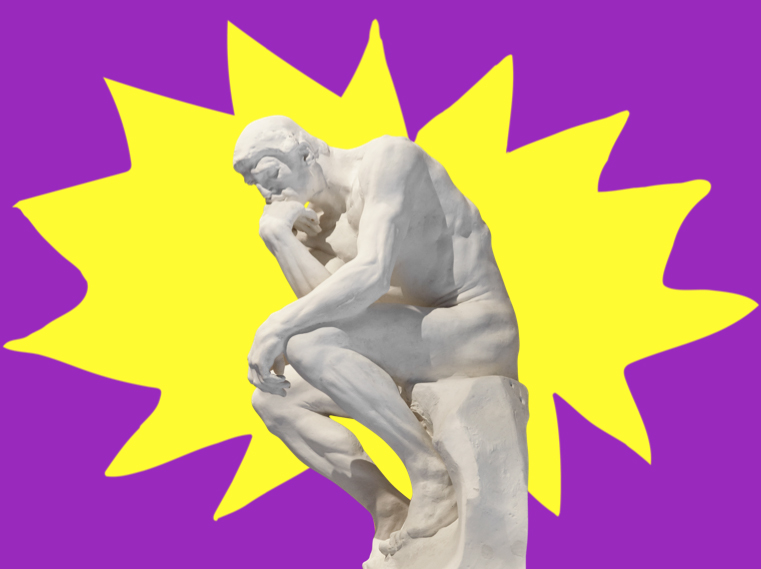
If so, you could be suffering from decision fatigue.
Decision fatigue occurs when you have to repeatedly make decisions. Every decision you make takes effort and depletes some of your mental resources. By the end of the day – after making hundreds of decisions – you feel mentally drained.
You struggle to make simple decisions (e.g., “What will I have for dinner?”) and the quality of your decisions deteriorates too (“I’ll get Uber eats”).
In the book The Gap and The Gain, Dr Benjamin Hardy describes decision fatigue as follows:
“Decision fatigue happens when you’re not sure what you’re going to do. It’s when you’re torn between options and, due to your indecisiveness, you often cave to the tempting worse option.”
Sound familiar?
Instead of studying, you go on social media.
Instead of cooking a healthy meal for dinner, you order greasy fish and chips.
Instead of getting to bed at a reasonable hour, you watch another episode on Netflix.
Unless you have the self-discipline and mental clarity of a Zen master, decision fatigue is something we have all experienced.
Research has found even people who are expert decision makers (i.e., judges) suffer from decision fatigue.
In one study researchers examined 1,112 judicial parole decisions by eight experienced judges at different times throughout the day.
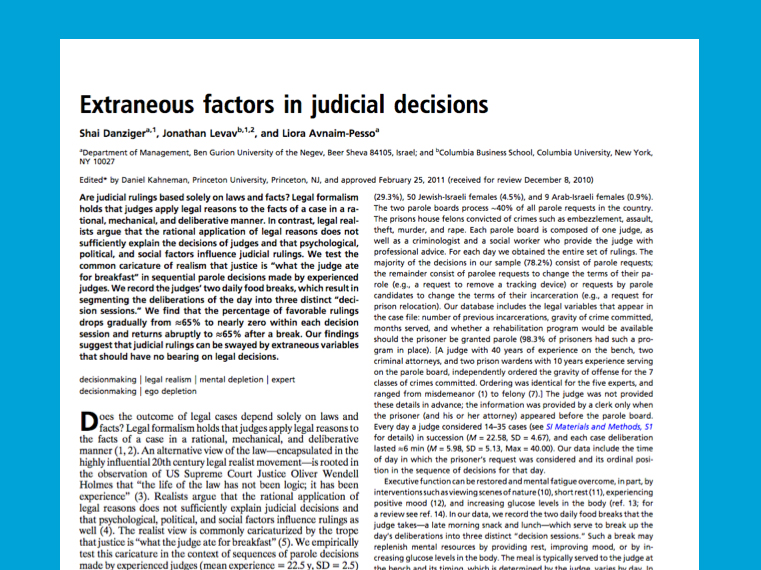
The researchers found if prisoners appeared before the judges at the very beginning of the day or after a food break (morning tea or lunch), they were more likely to get granted parole than prisoners who appeared later in the sequence of cases in a session.
In fact, they found the probability of a favourable decision dropped from 65% to almost 0% from the first ruling to the last ruling with each sitting session.

What was going on?
When the judges started their work day, they had a lot of mental resources available. One would assume these judges had slept well and had some breakfast.
But as each sitting session progressed, each decision they made depleted their mental resources and executive function. Just before morning tea or lunch, their mental resources would have been running low.
The researchers argued that when the judges had limited mental resources they became increasingly punitive. They simplified their judicial decisions and went with the status quo which was to deny parole requests.
This phenomenon is known as the Irrational hungry judge effect.
What do you do with a hangry judge?
Give them plenty of breaks and food.
In this study, the judges’ mental resources seemed to be replenished and their decision making ability restored after morning tea and lunch breaks.
What does this research on hangry judges have to do with your studies and work?
Here’s how it relates . . .
For optimal brainpower, you have to schedule in rest breaks. If you don’t schedule in regular rest breaks, they often don’t happen. You also need to take care of yourself with healthy food and healthy lifestyle practices and eliminate trivial decisions wherever you can.
Here are some simple and practical things you can do to overcome decision fatigue and keep your mental resources topped up:
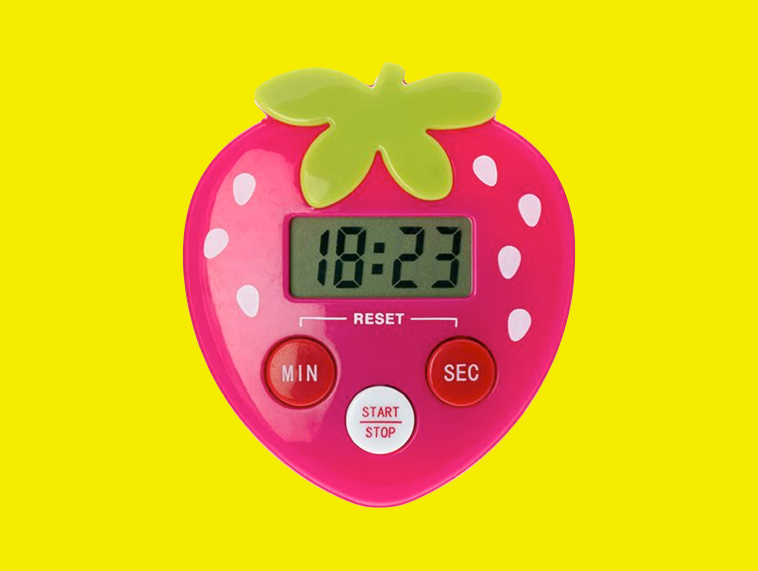
I like to have a digital timer within arms reach at all times when I’m working. At the start of a work session, I’ll set the timer for 20-30 minutes. When the timer goes off that’s my cue to get up and move.
The timer reminds me that:
1) I’m not a robot; and
2) I need to take breaks to replenish my mental resources.
Clicking and scrolling through your social media feed can rapidly deplete your mental resources. Jumping around the Internet from one random post or video to another can erode your attention and willpower. As the Center for Humane Technology states:
“When endless content creates an overwhelming amount of want, we can end up addicted to seeking satisfaction, clicking and scrolling, mindlessly consuming content, often with minimal oversight from cognitive control regions of the brain. Ultimately, this behavior drains our energy.”
Social media algorithms also promote content that provoke angry reactions over neutral and positive reactions. When you see posts that fill you with anger and other negative emotions (e.g., fear, envy, and anxiety), this can also leave you feeling drained.
So, be intentional about your social media use. Ask yourself, “Why am I going on here? What’s the point?” If it’s for fun and/or entertainment, that’s fine. But it’s a good idea to have your digital timer nearby and set a time limit. When the timer goes off, say out loud “That’s enough. I’m getting off!”.
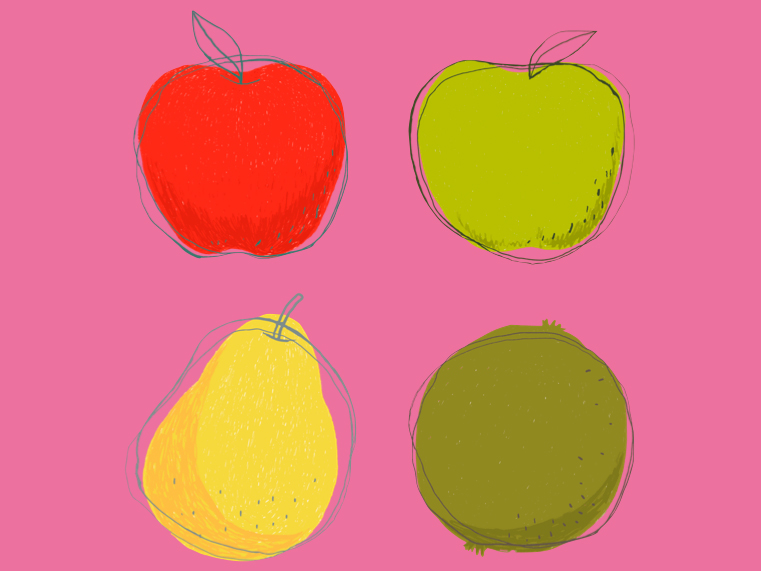
Your brain needs energy to function at an optimal level. Where does it get that energy from?
Simple answer: food.
Author of The Willpower Instinct Dr Kelly McGonigal recommends fuelling your body with foods that give you lasting energy. She states:
“Most psychologists and nutritionists recommend a low-glycemic diet- that is, one that helps you keep your blood sugar steady. Low-glycemic foods include lean proteins, nuts and beans, high-fiber grains and cereals, and most fruits and vegetables-basically, food that looks like its natural state and doesn’t have a ton of added sugar, fat, and chemicals.”
Establishing habits, pre-planned responses, and checklists reduces the number of decisions you need to make, subsequently preventing decision fatigue.
I’m a big fan of tiny habits and implementation intentions to help streamline the day. I also have a folder of checklists to help me pack equipment for various trips, work jobs, and community events.
These checklists make all the difference, especially when packing for trips away. The night before I go away, I grab my packing list and start throwing items into my bag. Very little mental effort and/or decision making is required! I get to start my holiday full of energy rather than feeling mentally depleted and grumpy.
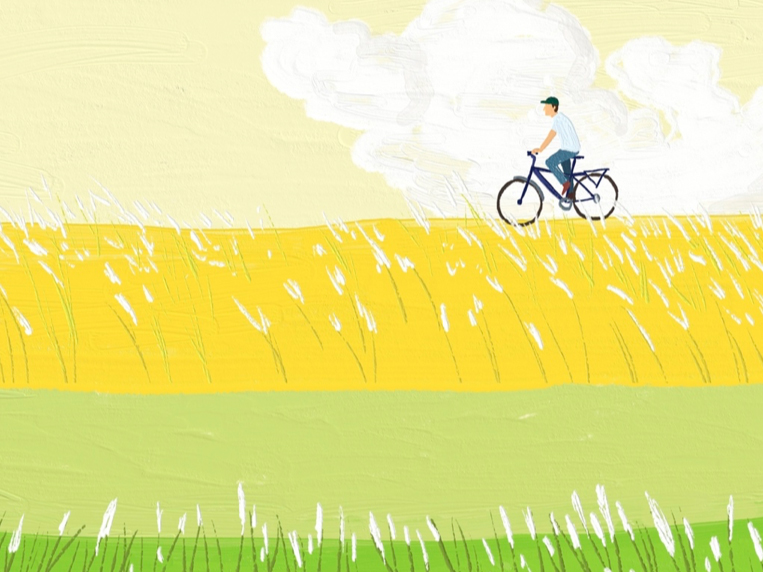
If you’re feeling overworked and mentally frazzled, head outside for a good dose of nature. Research by Hartig shows nature can restore deficits in attention and make people think and feel better.
I understand when you’re feeling tired, the last thing you want to do is get up and move. But research shows a five minute walk can do your brain the world of good.
One study found taking six regular five minute walking breaks every hour left people feeling more energised and less fatigued than people who just took one 30 minute walking break and sat for the rest of the day.

Can you lay out your clothes the night before? Pack your lunch and bag before you go to bed? Write a short to-do list for the next day? If you can knock off a few trivial decisions the night before, this is going to lighten your mental load the next day.
I love the energising effect of taking a post-lunch/afternoon siesta. I started taking power naps when I was an exchange student in Italy. My Italian host mother insisted I take a nap after lunch (it’s what everyone in the village did). So, when in Rome . . .
I grew to love taking naps. In fact, I’ve continued the practice for the past 20 years.
I recommend limiting your naps to 15-30 minutes in duration (any longer and you risk waking up feeling groggy). To avoid messing with your sleep at night, make sure you take your nap before 5pm.
We can all learn a thing or two from the example of the punitive behaviour of the hangry judges. To avoid the Irrational hungry judge effect you need to take care of yourself.
The good news is there’s a lot you can do to replenish your mental resources. If you take a few minutes here and there to engage in tiny self care practices, not only will you feel better but you’ll more likely make better decisions.
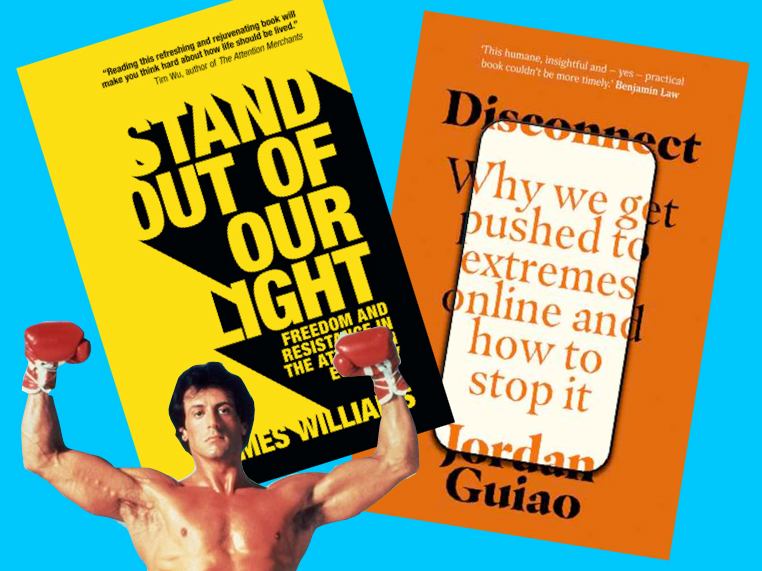
I read some absolute gems.
I’m a firm believer that a good book can change your life. This is why I make time to read every day.
As Australian actor Francis Greenslade advises in his book How I Learnt to Act:
“Read novels and plays and poetry. Read everything. I can’t stress this enough. Reading gives you so, so much. The more you read, the more new ideas you absorb, and the more new situations you experience . . .
The more you read, the greater your powers of concentration. What’s even more beautiful about reading is that it puts you into the head of someone else. It forces you to abandon your view of the world and take on anothers. In other words reading gives you empathy . . .
And it’s never too late to start. Read a book and you’ll become a better actor. But Snapchat and glossy magazines and online games – they don’t give you anything.”
1. Dopamine Nation: Finding Balance in the Age of Indulgence by Dr Anna Lembke
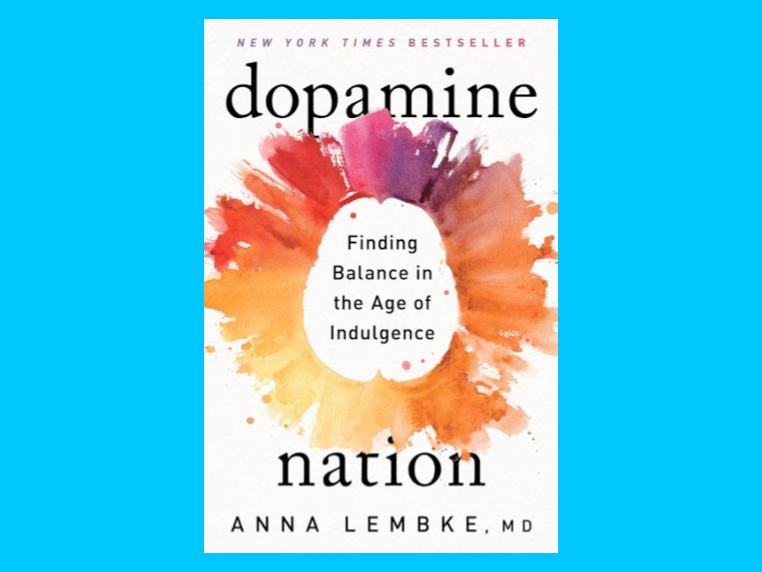
In Dopamine Nation Psychiatrist Dr Anna Lembke argues that in the modern world most of us are running from pain. Whether we’re numbing ourselves with drugs, bingeing on Netflix, gambling, or compulsively shopping online, we’re “distracting ourselves from ourselves”. Lembke states:
“The reason we’re all so miserable may be because we’re working so hard to avoid being miserable.”
Dr Lembke shows readers a path to living a more authentic and fulfilling life.
Spoiler alert: the good life isn’t about having whatever you want, whenever you want. It’s about embracing the discomfort of the present moment and giving our dopamine receptors a chance to regenerate.
2. Stand Out of Our Light: Freedom and Resistance in the Attention Economy by James Williams

Ex-Google strategist turned philosopher James Williams has written a brilliant book on the importance of reclaiming your attention and fighting back against the persuasive techniques used by the attention economy (i.e., big tech companies).
This book helped me to clearly see that the goals of big tech companies are not aligned with my personal goals. These companies do not have our best interests at heart. Williams argues if you want to be truly free and reclaim your capacity to think, you need to extract yourself from these machines of industrialised persuasion.
3. Stolen Focus: Why You Can’t Pay Attention – and How to Think Deeply Again by Johann Hari
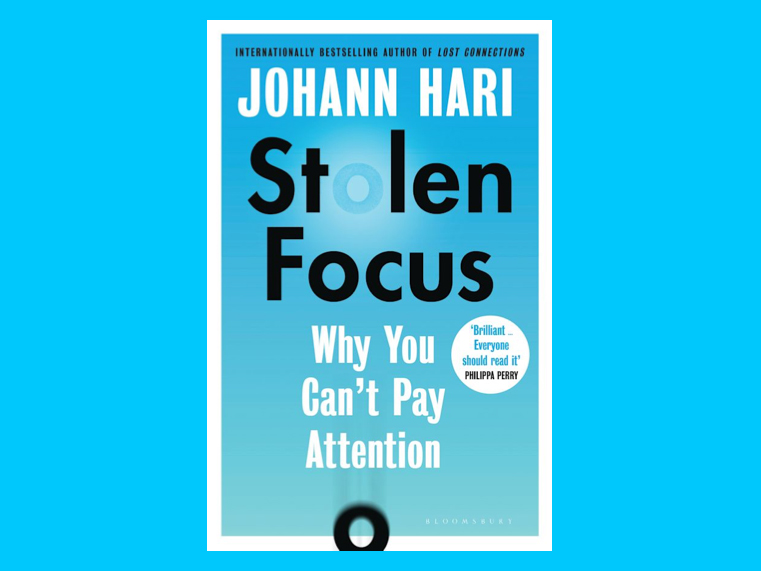
Johann Hari deserves an honorary doctorate for this literary masterpiece. In Stolen Focus, Hari travels the world interviewing experts to understand why our ability to focus has degraded and what can be done about it.
This is a complex, multipronged problem. Hari argues that we need systemic change to solve this crisis of attention (individual action won’t cut it). And this crisis of attention desperately needs our attention. If we stand any chance of solving the major issues we currently face (e.g., climate change), we need to build a social movement to reclaim our attention.
4. Mindful Self-Discipline: Living with Purpose and Achieving Your Goals in a World of Distractions by Giovanni Dienstmann

Being self-disciplined is the key to achieving your goals. But with just one click, you can get sucked into a world of instant gratification. How can you cultivate greater self-discipline in the age of distraction?
Giovanni Dienstmann has thought deeply about this question. In Mindful Self-Discipline he explores the many aspects to cultivating self-discipline. Topics include avoiding the trap of easy dopamine, creating a focus-friendly environment, letting go of unfair comparisons, and cultivating time awareness. This is the best self-help book I have read in a long time. I highly recommend it.
5. Time Wise: Powerful Habits, More Time, Greater Joy by Dr Amantha Imber

I’m a little sceptical of most productivity and time management books, but I enjoyed reading this book by Dr Amantha Imber. It’s a collection of strategies gathered from her popular podcast ‘How I work’.
I particularly liked the strategies presented to deal with addictive technology.
Some of my favourite strategies included:
• Putting rubber bands horizontally across your phone screen: this acts as a physical barrier to checking your phone.
• Solitude deprivation: Having time to be alone with your thoughts (no inputs from technology). This involves planning when you want to receive inputs from your phone and other devices.
• Creating stopping cues: Social media companies use strategies to keep you scrolling and clicking. To combat features like the infinite scroll, you can create your own stopping cues (e.g., having a set time to log off).
6. Move the Body, Heal the Mind: Overcome Anxiety, Depression, and Dementia and Improve Focus, Creativity, and Sleep by Dr Jennifer Heisz by Dr Jennifer Heisz
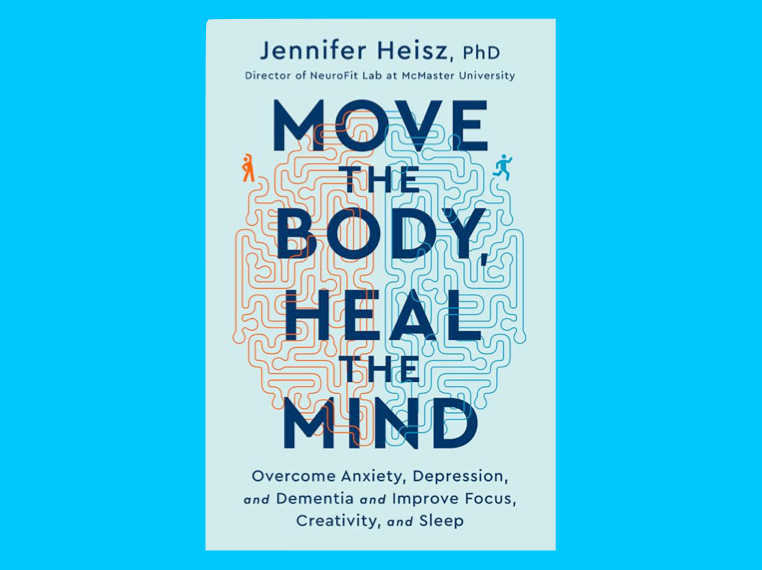
Over the years I’ve read a lot of books on the benefits of exercise but this book tops the list!
Neuroscientist Dr Jennifer Hiesz does a superb job presenting the science behind what exercise does for brain health, mental health, and preventing dementia.
Reading this book was like having a light bulb go off in my head. It gave me a deeper appreciation of exercise and how it has helped me to reduce anxiety, keep depression at bay, enhance my focus, and get through challenging times.
7. Disconnect: Why We Get Pushed to Extremes Online and How to Stop it by Jordan Guiao
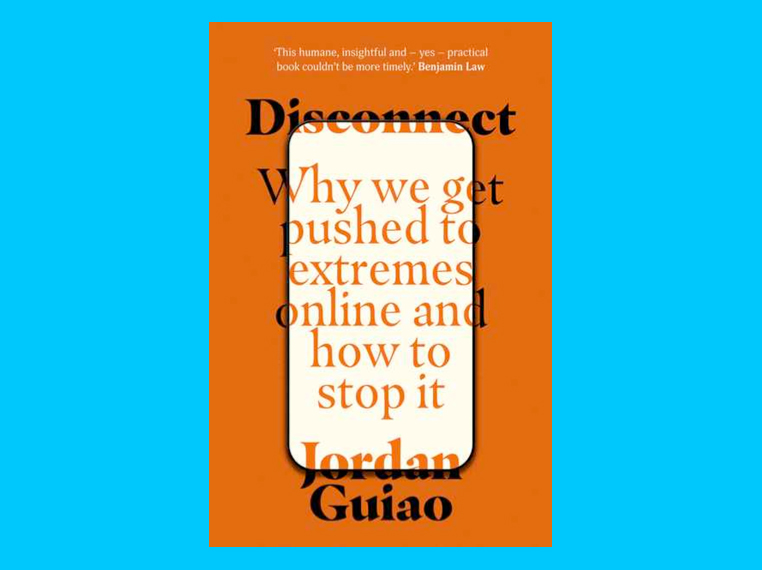
This year I have had more conversations with people who believe in conspiracy theories than in the previous 10 years of my life. It’s alarming. How did we get here?
If you know someone who has fallen down conspiracy theory rabbit holes, this book will help you understand how this happens and what you can do to help your loved ones. Guiao also explores a number of other Internet related issues including social media narcissists, naïve futurists, hateful trolls, and dating app pests.
So, there you have it! Those are my favourite nonfiction books for 2022. They were packed full of life changing strategies and wisdom. I’m grateful to these authors for sharing their ideas with the world.
What books did you enjoy reading this year?
I’d love to hear your recommendations.
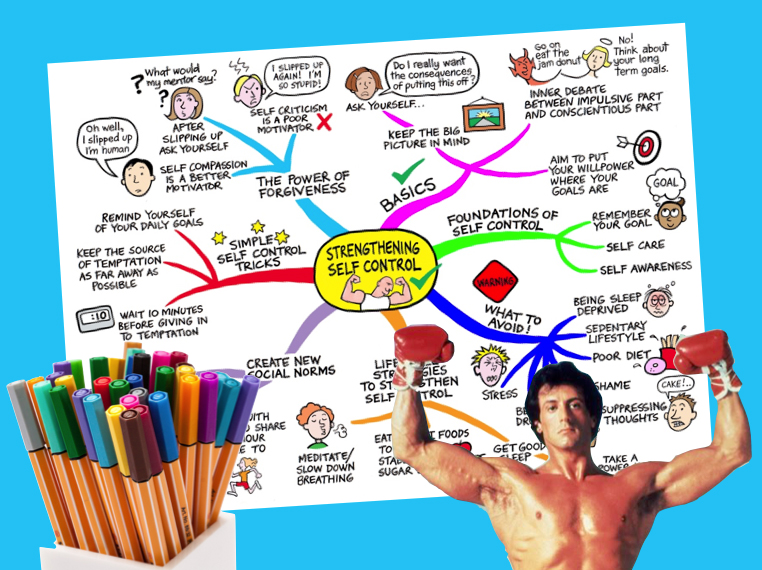
The funny drawings, the colour, and creativity can transform any dry subject into something that’s interesting for the brain.
But mind mapping is also a great life strategy. You can use it to create plans, capture ideas from books, set goals, clarify your thinking, organise your finances, and work your way out of messy situations.
Below I explore some different ways you can use mind maps in your day-to-day life.

Do you ever read books and then feel frustrated when you can’t remember much from them?
This is why I mind map out every non-fiction book that I read.
I know that there are limits to my memory. If I want to be able to extract ideas and strategies from a book and apply them to my life, I’m going to need to create mind maps.
There are two ways you can mind map a book:
1) You can mind map as you read: this forces you to slow down and really think about the ideas. I highly recommended doing this if the content is really complex. But this approach can be slow going!
2) You can mind map once you’ve finished reading: I use mini post-it notes to tab key ideas as I read. Once I’ve finished reading the book, I go back and mind map out the tabbed ideas. This way I have some perspective and can identify what’s important and what’s not (rather than assuming every sentence is important and needs to be mind mapped).
After I’ve finished mind mapping the book, I select a strategy that I’ve captured on the mind map to test out.
My husband has always been amazed at how I can take ideas from books and apply them to my life. But there’s no magic to this. I’m able to use lots of different strategies because mind mapping helps me to understand and remember them.
Let’s face it, if you can’t remember a strategy, you can’t use it!
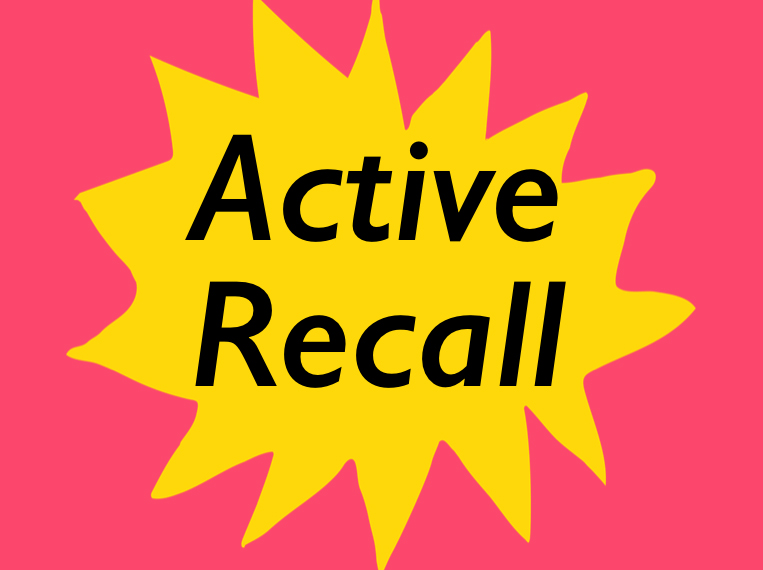
Let’s say you have a test or exam coming up. Here’s how you can use mind maps to effectively prepare . . .
Push your notes and books to the side (you can’t look at them). Now grab a blank sheet of paper. Set a timer for 5 minutes and try to create a mind map on the main ideas you can remember.
Don’t try to make these mind maps look pretty. You’ve only got 5 minutes, so scribble and draw out as much as you can remember.
Once you’ve exhausted your memory, pull out your notes and pick a different coloured pen. Take a look at your messy mind map: What did you get right? What did you get wrong? Where are the gaps in your knowledge?
This strategy is called Active Recall and it’s the most effective way to retain information. You can read more about it here.
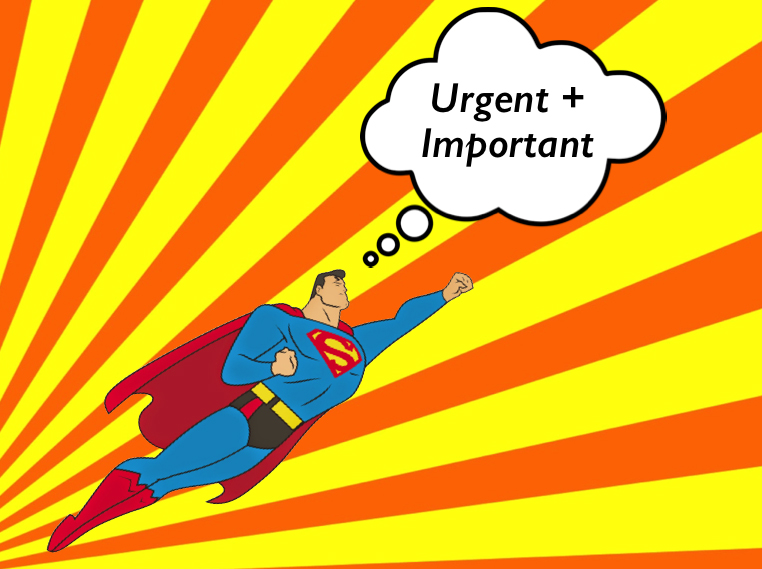
When you feel overwhelmed by life, everything can feel urgent and important. But not everything is urgent and important. A little prioritisation can save you a lot of stress and drama.
Grab a big sheet of paper, draw a circle in the middle, and write inside it Stuff to do. Now get everything out of your head and on to the page!
Once you’ve finished your mind map, look over all the tasks.
If a task is important, give it a tick.
If a task is urgent, circle it.
Focus your energy on knocking off the tasks that have ticks and circles around them (they are urgent and important).
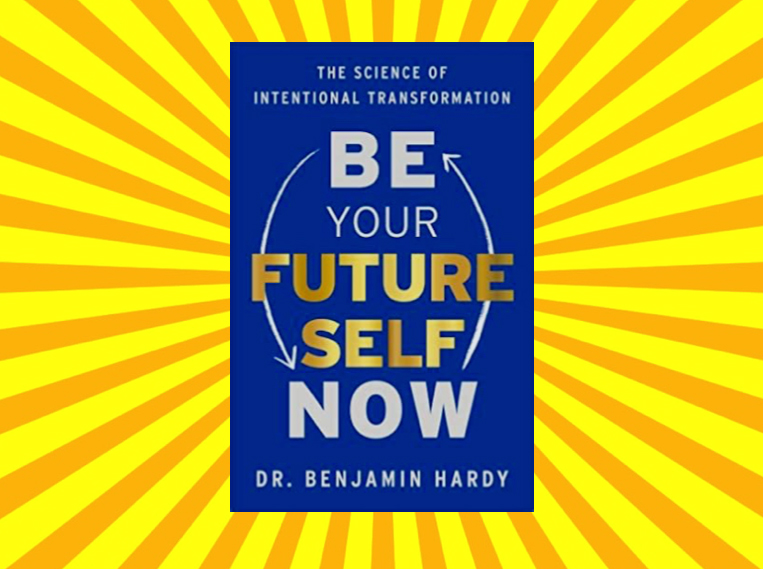
Research shows the more connected you are to your Future Self, the more committed you will be to achieving your goals and the wiser decisions you will make in the present.
Draw a circle in the middle of page and write inside it My Future Self. You can create branches for your Future Self in:
• 3 months’ time
• 6 months’ time
• 1 year’s time
• 3 years’ time
• 5 years’ time
Then off each of these main branches, write down your goals. What do you want to have accomplished by this time?
As Dr Benjamin Hardy states in his book Be Your Future Self Now:
“The clearer you are on where you want to go, the less distracted you’ll be by endless options.”
Note: Imagining your Future Self is not an easy thing to do. We are terrible at imagining where we are going to be in the future. So, don’t overthink it. Just get some ideas down on paper. As you gain more clarity around your goals and values, you can always add extra branches to your mind map.
I’ve found mind mapping to be a fun and effective way to capture, organise, and retain information. Even if I never look at the mind map again, the process of getting ideas down on paper makes a big difference. It helps me to feel more in control and on top of things.
If you need some clarity in a particular area, stop ruminating. Pick up a pen and start mind mapping!
Dr Jane Genovese delivers interactive sessions on learning to learn, combating procrastination, exam preparation, how to focus in the age of distraction, habit formation and much, much more!
Get FREE study and life strategies by signing up to our newsletter:
© 2024 Learning Fundamentals